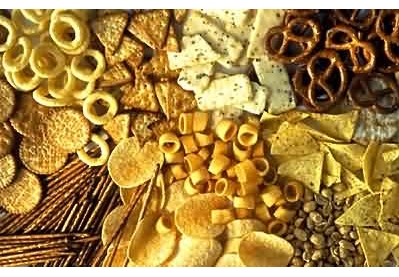Puffed food harm to human body
medical equipment for back pain,veterinary equipment for horses,veterinary laser therapy equipment,laser physical therapy equipment,Handheld Laser Device Shenzhen Guangyang Zhongkang Technology Co., Ltd. , https://www.nirlighttherapy.com Puffed food is a new type of food that appeared in the late 1960s. It is also known as extruded foods, popped foods, and portable foods. It uses cereals, potatoes, beans, etc., which contain less water as the main raw material. After pressure and heat treatment, the volume of the raw material itself expands, and the internal structure of the material also changes, after processing and molding. production. It uses cereals, beans, potatoes, vegetables, etc. as raw materials, and is processed through expanded equipment to produce a wide range of products with exquisite shapes, rich nutrition, and crisp and fragrant foods.
Puffed food is a new type of food that appeared in the late 1960s. It is also known as extruded foods, popped foods, and portable foods. It uses cereals, potatoes, beans, etc., which contain less water as the main raw material. After pressure and heat treatment, the volume of the raw material itself expands, and the internal structure of the material also changes, after processing and molding. production. It uses cereals, beans, potatoes, vegetables, etc. as raw materials, and is processed through expanded equipment to produce a wide range of products with exquisite shapes, rich nutrition, and crisp and fragrant foods.
Usually, the lead content of expanded foods is relatively high. This is because foods are processed through metal pipes during the processing. Metal pipes usually contain alloys of lead and tin. In the case of high temperatures, these lead will vaporize and vaporize. After the lead will contaminate these puffed foods. Children living in high-lead environments may experience cognitive impairment after they grow up. At the annual meeting of the American Heart Association, the researchers said that effective research results indicate that if a teenager lives in a high-lead environment, it will mean As they grow older, their cognitive ability will be impaired. In addition, their blood pressure is generally higher.
In particular, it is worth noting that street hawkers use popcorn produced by “food expanders†to make it harder to eat, because the "food expander" used in popcorn is heated on the inner wall of lead-tin alloys. They entered the popcorn in a gasified form, causing food contamination with lead. According to testing, the content of lead in these foods far exceeds the national standards. Therefore, for the child's health should eat less puffed food, and it is best not to allow children to eat in an empty stomach.
In addition, aluminum is not a trace element that the human body needs, but the aluminum contained in food exceeds a certain standard and will cause harm to the human body. Director Yang Ruihua introduced that the sources of aluminum in daily foods are partly from additives such as bulking agents in foods (such as alum and sodium bicarbonate), and some are dissolved from packaging materials, but also in some foods added with alum. Produce aluminum. Experts pointed out that only 10%-15% of the human body after intake of aluminum can be excreted into the body, most will accumulate in the body, combined with a variety of proteins, enzymes and other important components of the body, affecting a variety of biochemical reactions in vivo, long-term intake It can damage the brain function. In severe cases, dementia may occur, especially in children with weaker body resistance, which can lead to children's developmental delay, osteomalacia, and so on, and intelligence may also be affected.